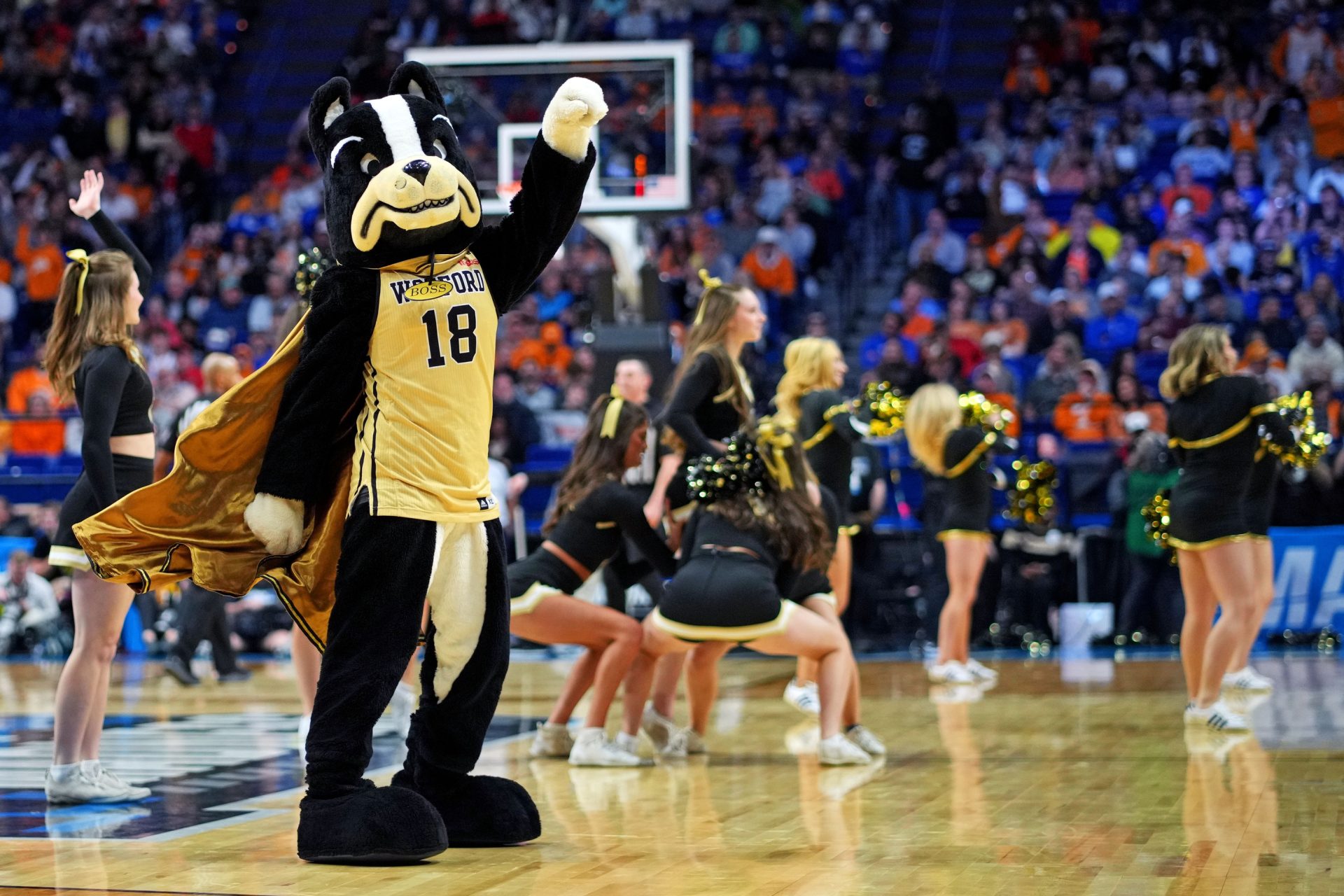The NCAA has issued a strong, pointed denial of an On3 story published Thursday alleging that it had suspended and/or declared six Wofford men’s basketball players ineligible over receiving minor “impermissible benefits” related to the use of meal plans while living off-campus.
“This is not accurate,” the NCAA’s PR account wrote on X Thursday evening, quoting the tweet from reporter Jeff Goodman, who had written the story for On3. “The NCAA did not suspend student-athletes at this school and did not take any action against any athletic department personnel at this school.” (The statement, repeated in two quote tweets, was first posted as a result of a Front Office Sports post citing the On3 reporting.)
The NCAA elaborated in an exclusive statement to Front Office Sports Friday, suggesting Wofford had declared players ineligible through a routine infractions reporting process that is usually swiftly resolved through the NCAA with no consequences to players themselves.
The governing body doesn’t usually comment on what it calls “Level III,” or minor violations. (It typically doesn’t issue statements via social media either). But the NCAA is taking action to correct the record after being accused of punishing players for what many see as inconsequential violations.
According to the story, six Wofford men’s basketball players were told this past summer that they would receive housing in upperclassmen dorms at Wofford, which is in South Carolina, that include “ensuite bathrooms.” Instead, they were put in underclassmen dorms. They opted to rent an apartment off-campus and pay their own rent—a solution suggested to them by associate head coach Tysor Anderson, according to their attorney, Mark Peper, who was quoted in the story.
But they continued to use their meal plan, which is apparently against NCAA rules; the “impermissible benefits,” ranged from $84 to $108. The players weren’t aware of the rule, Peper told On3, adding the players were told on Sept. 17 that the NCAA had deemed them ineligible as a result.
The NCAA further disputed the article in a statement to FOS Friday. “Minor violations of rules regarding impermissible benefits are typically self-reported by schools, then processed as Level III, and are rarely if ever investigated by the NCAA,” the governing body said in a statement to FOS. “In those types of minor cases, schools declare the student-athletes ineligible and then work with NCAA staff to seek reinstatement which can be completed in less than 24 hours with minimal—if any—consequence to the student-athlete.”
In a statement emailed to FOS Friday, Peper said that Goodman had adjusted the headline to say players had been deemed ineligible, rather than that they had been suspended. But he held that the facts in the story “were accurate and remain accurate,” he added. “The players are in the process of applying for reinstatement and we’re confident the matter will be resolved as early as this afternoon.”
The article also said Wofford fired head coach Dwight Perry and Anderson as a result of the rules violations.
A representative for Wofford said the article had “a number of inaccuracies,” but did not elaborate on what those inaccuracies were—or whether the reason for the coaches’ firing was related to the infractions. The NCAA denied that it had any jurisdiction over personnel issues in these types of violations, telling FOS: “Suggestions in public reporting that the national office required a school to take any disciplinary action against staff members for minor violations are wholly inaccurate.”
Goodman did not respond to a request for comment.
While the NCAA’s process to clear players of minor violations seems cumbersome, the NCAA itself is not authorized to change them. That would require a vote by NCAA members, the governing body noted in a statement, which are the schools themselves.
The release of Perry and Anderson appears to have been a Wofford athletics decision. The players have asked to have the two coaches reinstated, Peper told On3, and will enter the transfer portal if they aren’t—putting the team in jeopardy of not having enough players for a men’s basketball team this year.





![[Subscription Customers Only] Jun 15, 2025; Seattle, Washington, USA; Botafogo owner John Textor inside the stadium before the match during a group stage match of the 2025 FIFA Club World Cup at Lumen Field.](https://frontofficesports.com/wp-content/uploads/2026/02/USATSI_26465842_168416386_lowres-scaled.jpg?quality=100&w=1024)
![[Subscription Customers Only] Jul 13, 2025; East Rutherford, New Jersey, USA; Chelsea FC midfielder Cole Palmer (10) celebrates winning the final of the 2025 FIFA Club World Cup at MetLife Stadium](https://frontofficesports.com/wp-content/uploads/2026/02/USATSI_26636703-scaled-e1770932227605.jpg?quality=100&w=1024)










